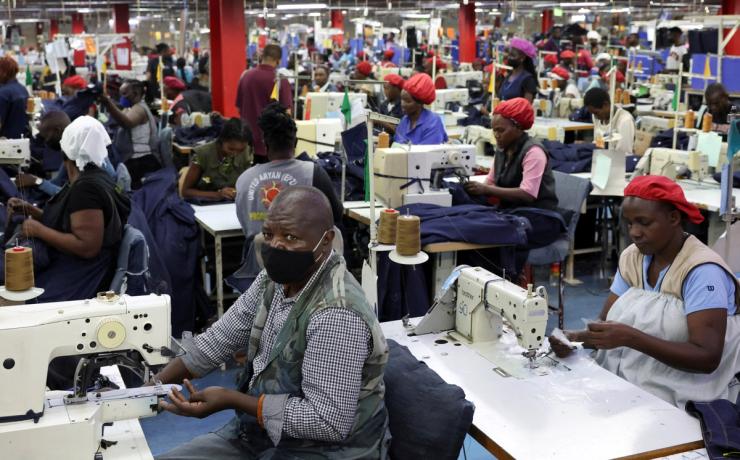The News
This month, trade representatives from across Africa made their way around Washington DC, meeting with influential congresspeople on Capitol Hill. They were there to plead the case for the African Growth and Opportunity Act (AGOA) — the 25-year old preferential trade agreement that enabled zero tariffs on certain categories of exports into the United States.
AGOA, which was last renewed in 2015, is set to expire on Tuesday (Sept. 30) and there’ve been few signs that the current Republican-led Congress is interested in countering US President Donald Trump’s bumper tariffs economic agenda.
But the continent’s representatives still harbor hope. As one African ambassador told me, “we’re really pushing for AGOA.” And it’s not just African government representatives who have been in town in recent weeks: A delegation of textile industry leaders from Kenya, Lesotho, Madagascar, Mauritius, and Tanzania held several meetings on the Hill. Textiles have been one of the biggest beneficiaries of AGOA and, by some estimates, up to 300,000 jobs could be at risk if AGOA were scrapped.
There’s increasing talk in Washington that AGOA might persist for another year in some form. Lesotho’s trade minister told his local press after his return from Washington that he expects an extension later this year. The ever-optimistic Kenyan President William Ruto said he would be making the case to US Secretary of State Marco Rubio: “AGOA gives both Africa and the US the best chance to expand and deepen trade.”
Know More
In Washington, discussions have centered on how AGOA has been great for helping sub-Saharan African countries access the US, the world’s biggest market. But there’s a strong sense from close US-Africa watchers that AGOA has never quite delivered on its promise of boosting African exports in a meaningful and sustainable way.
In 2023, US imports under AGOA topped $9.7 billion, down from $10.2 billion the previous year. The figures were dominated that year by $4.2 billion in crude oil trade. Imports also included around $1.1 billion in apparel and over $900 million in agricultural products.
Beyond AGOA, which accounted for around 10-15% of total US-Africa trade in recent years, it’s clear the US runs the biggest trade deficits in dollar terms with Africa’s biggest commodity exporters, including South Africa, Angola, Nigeria.


